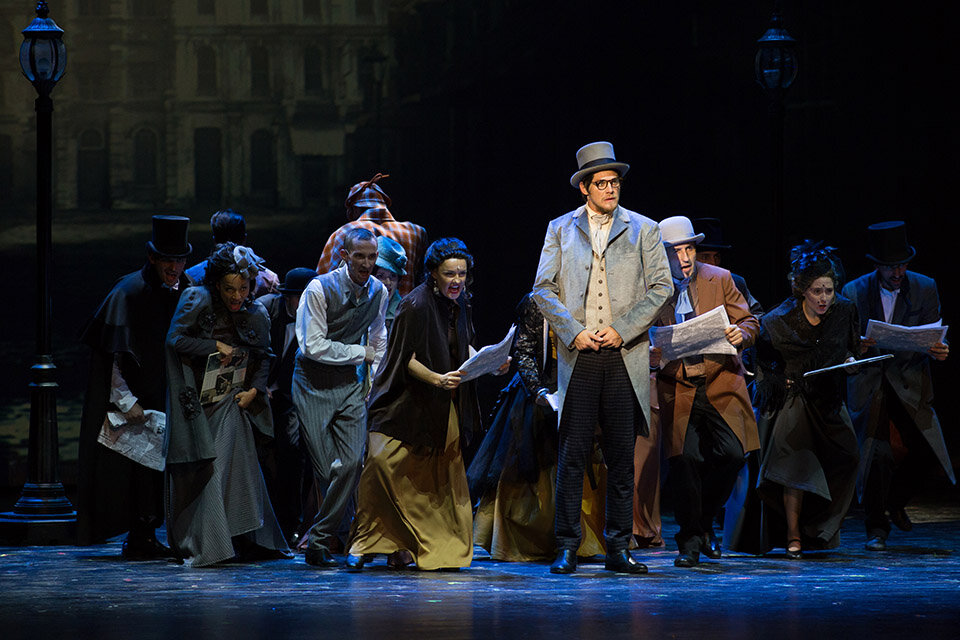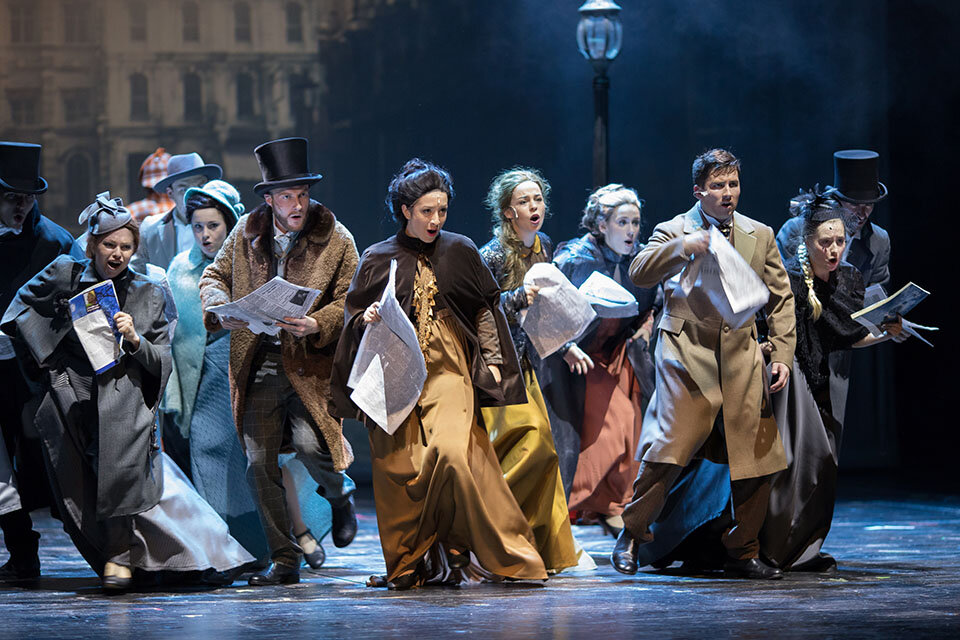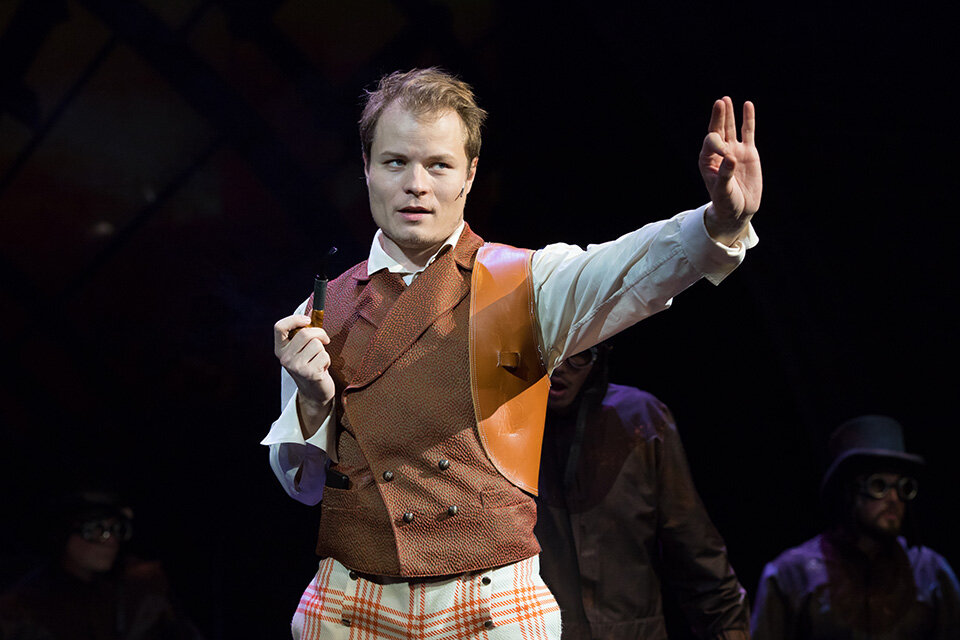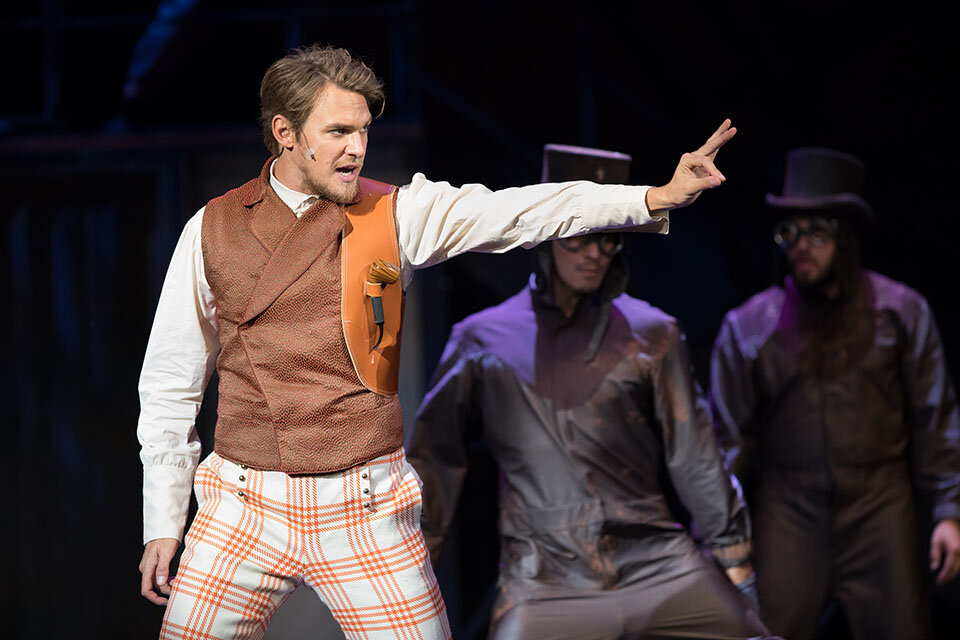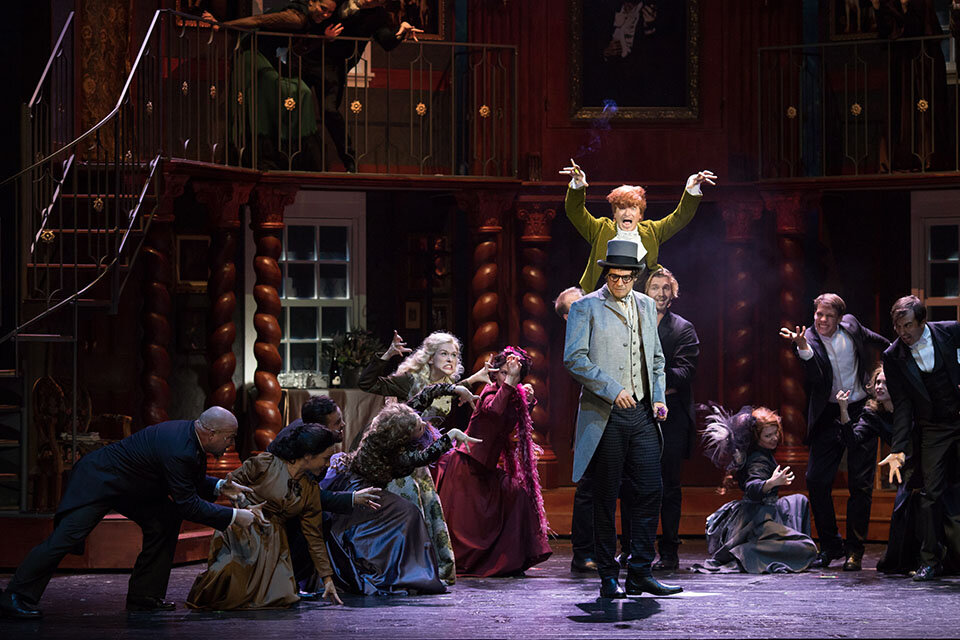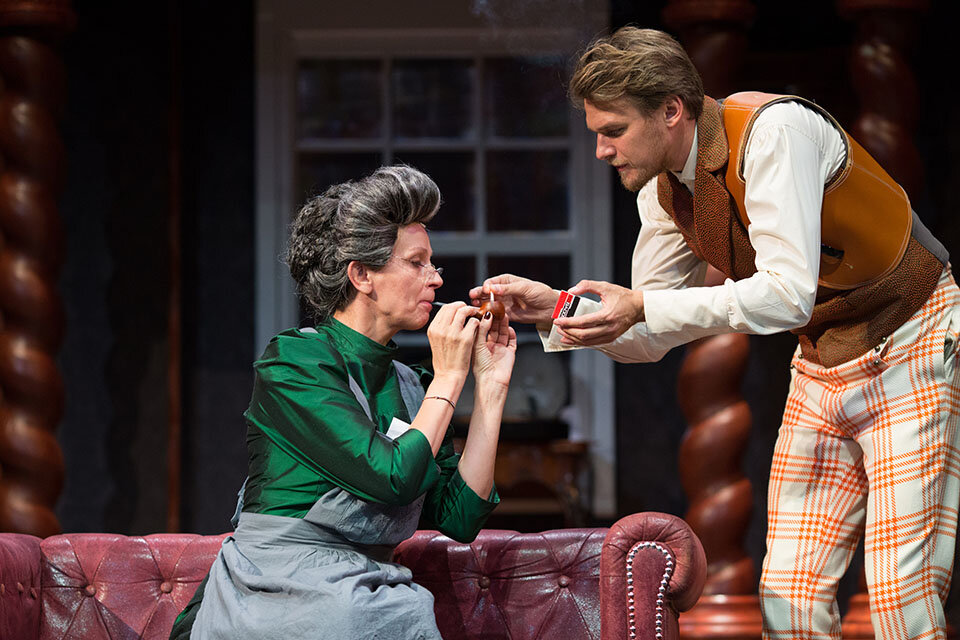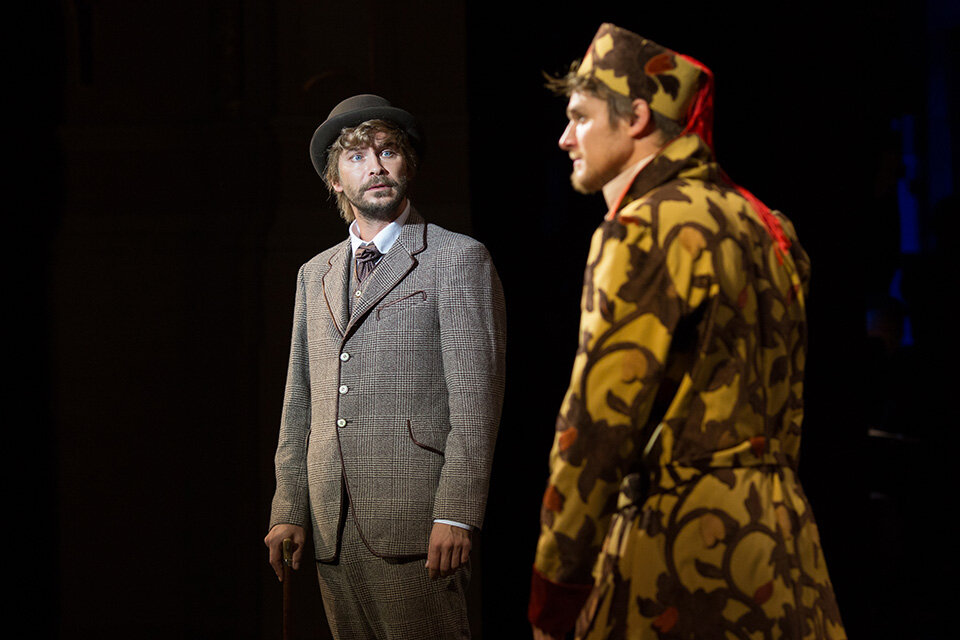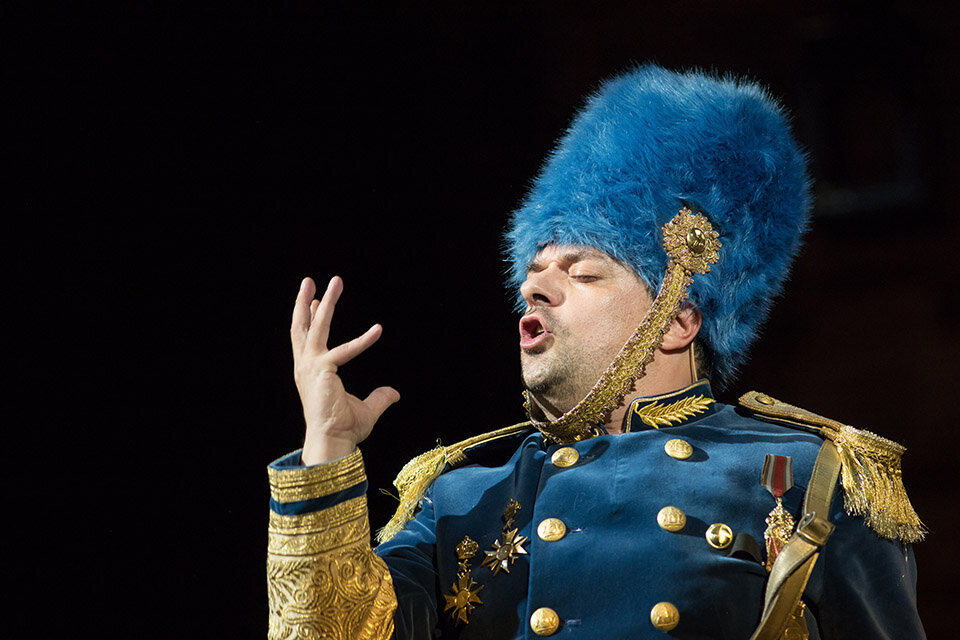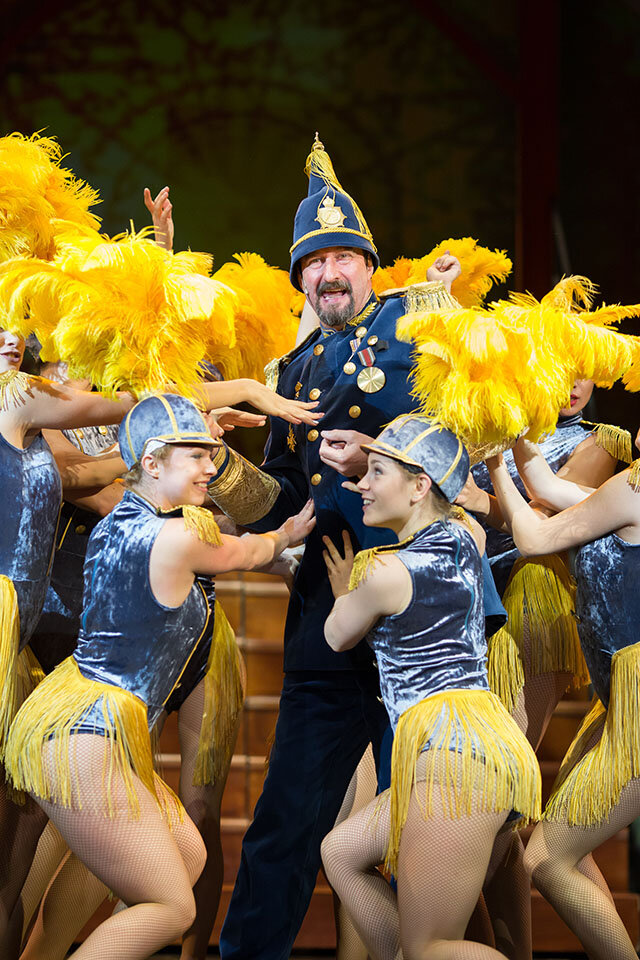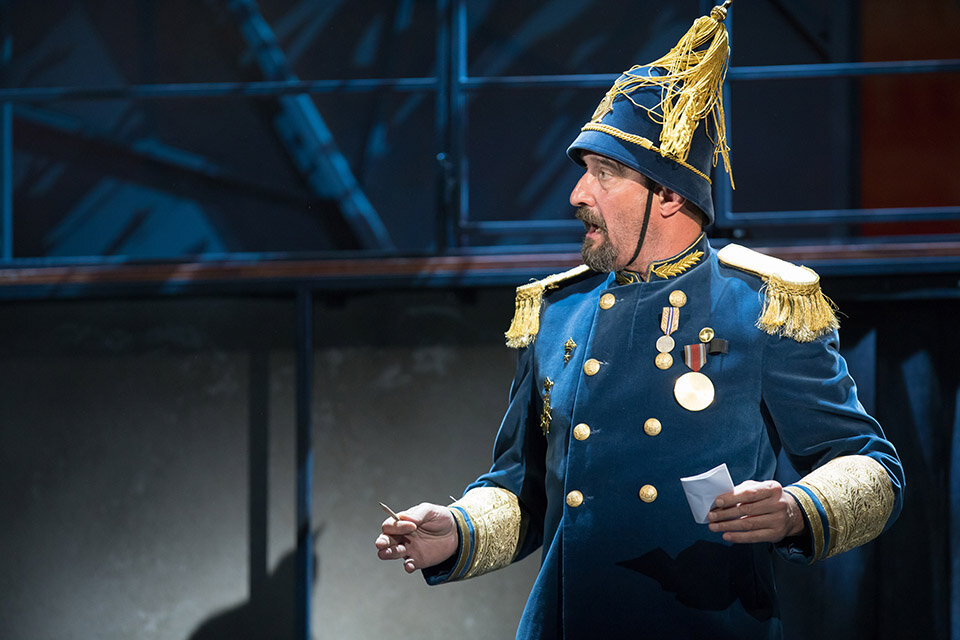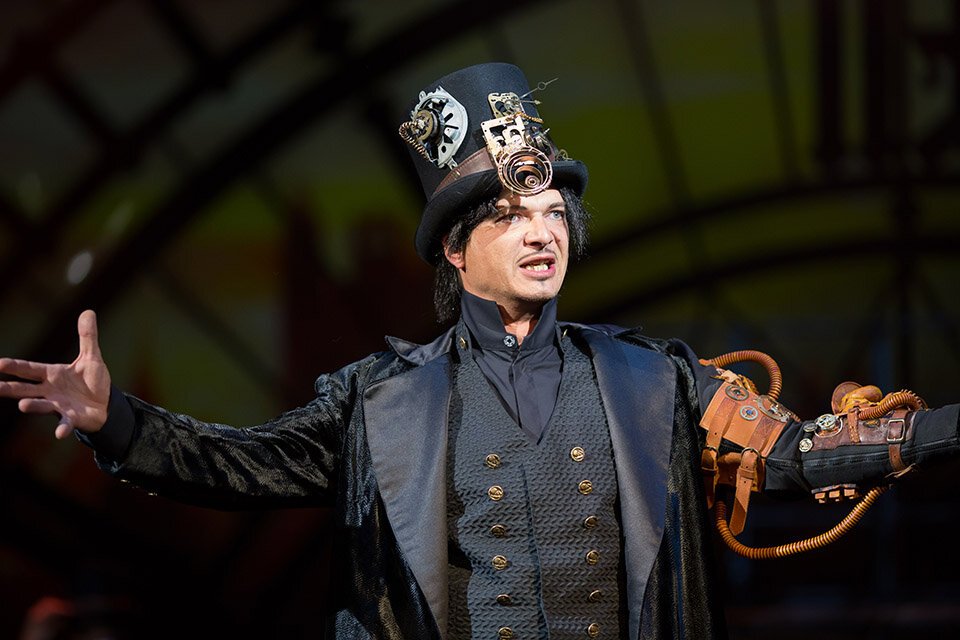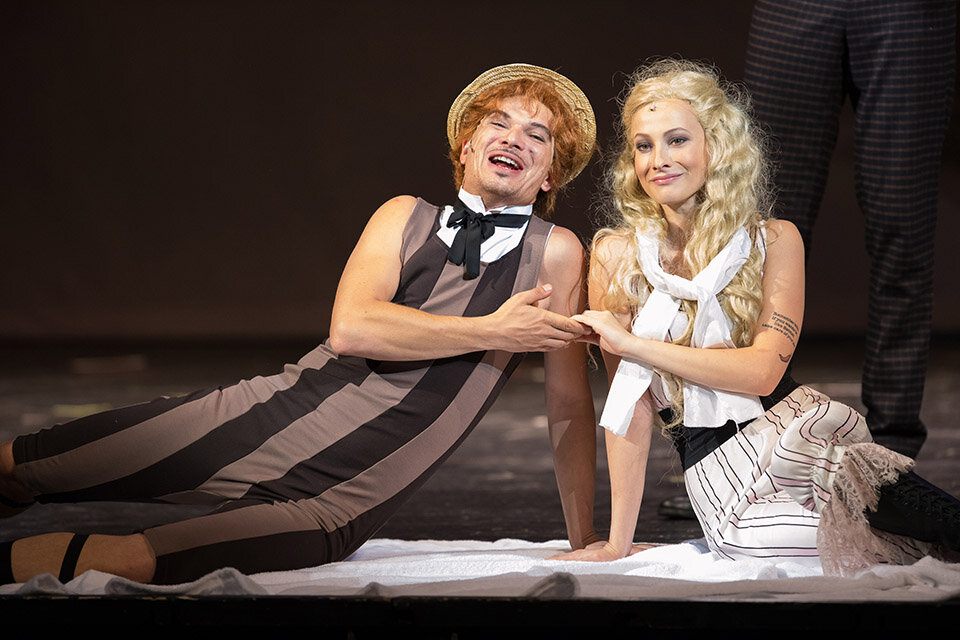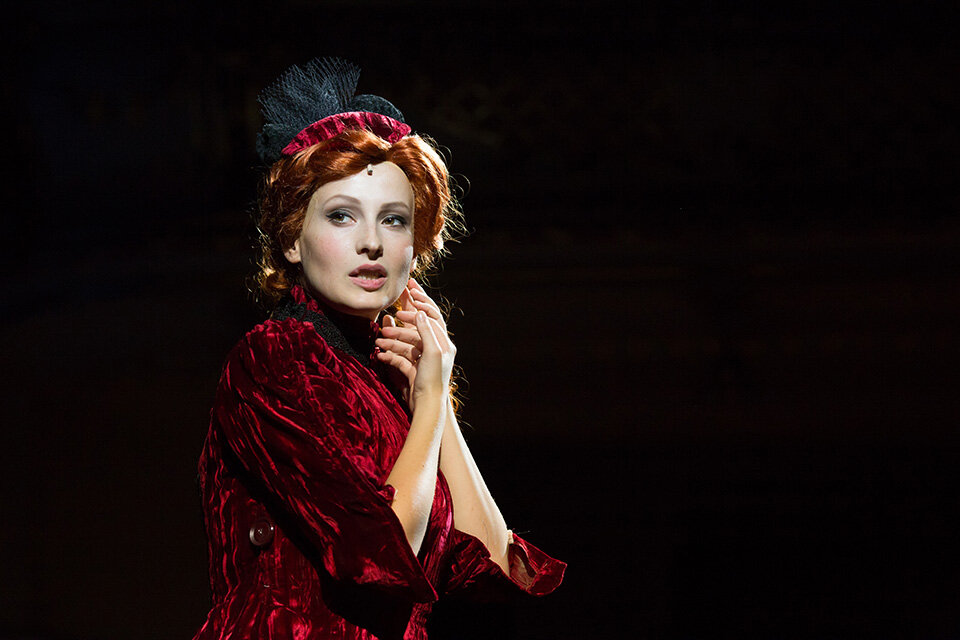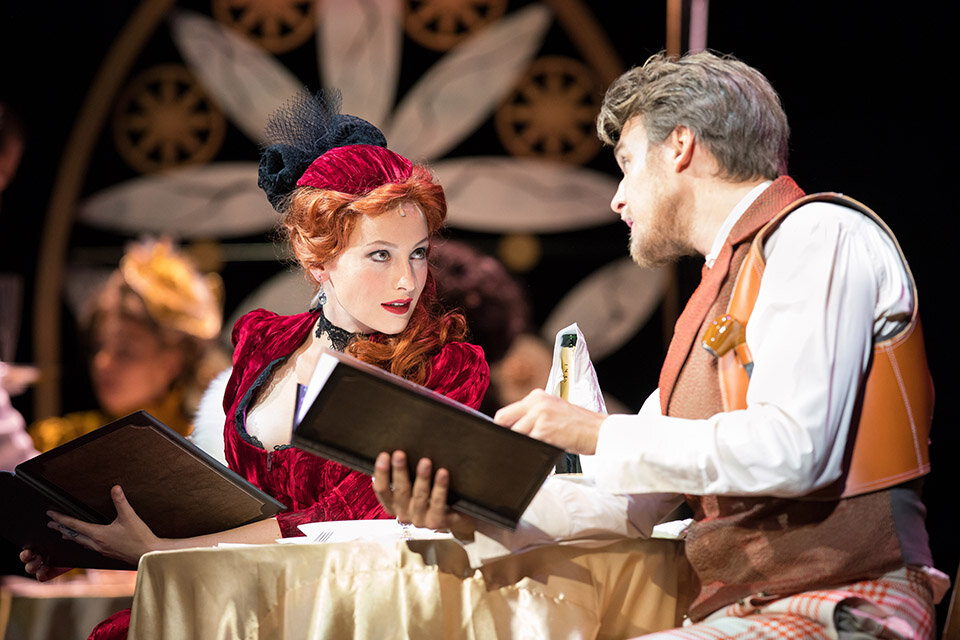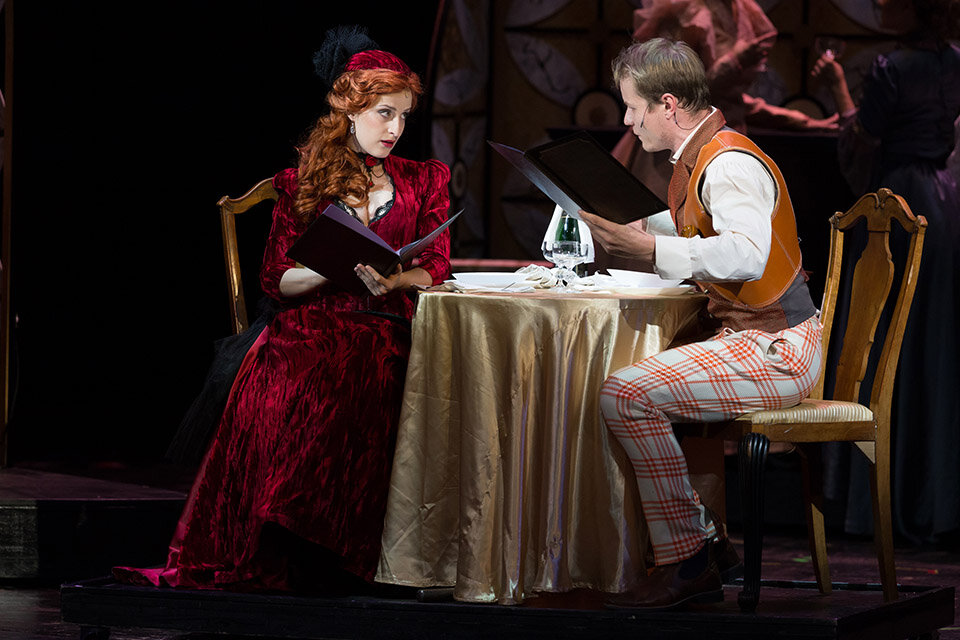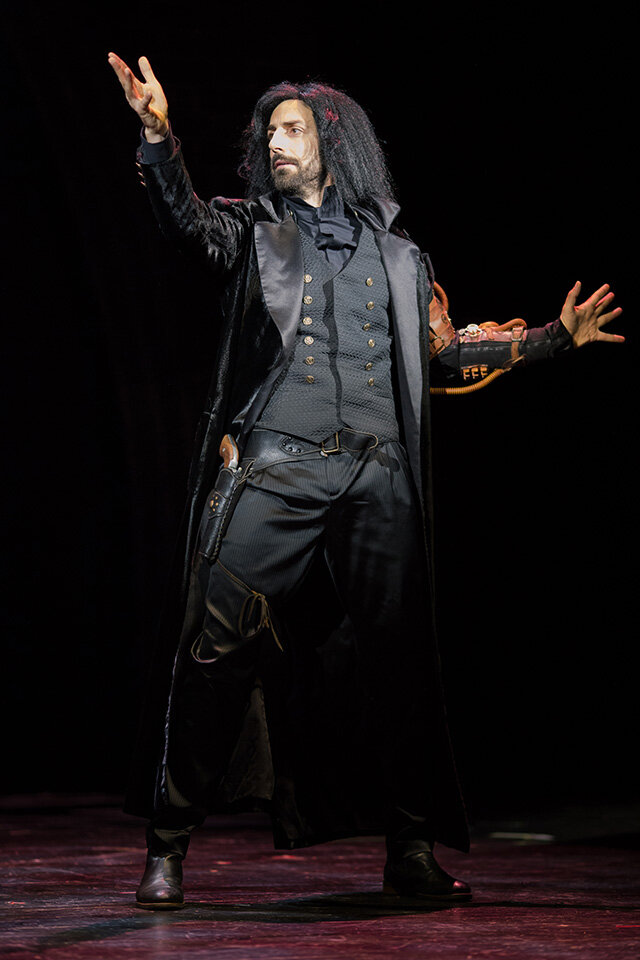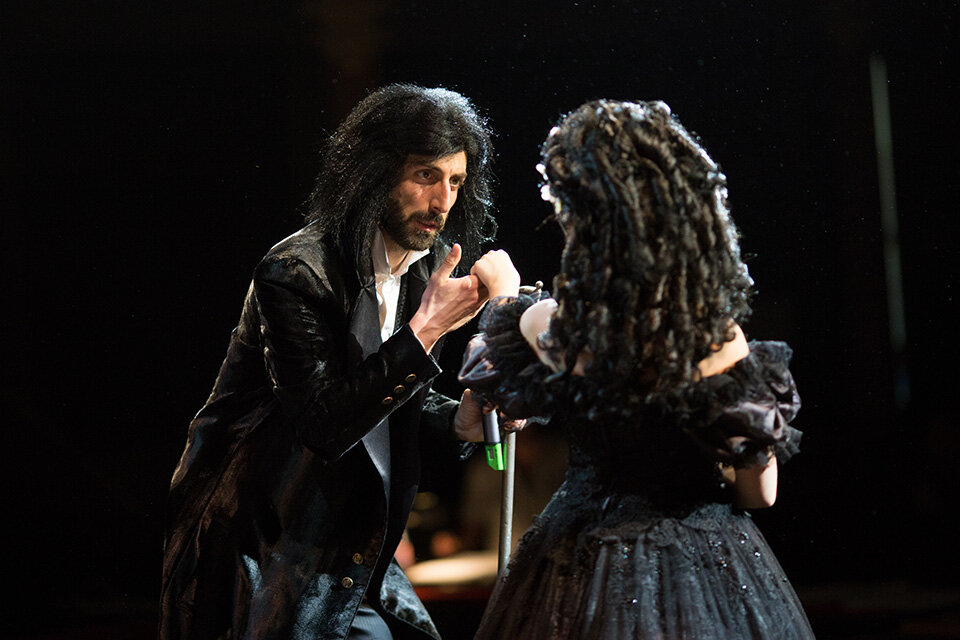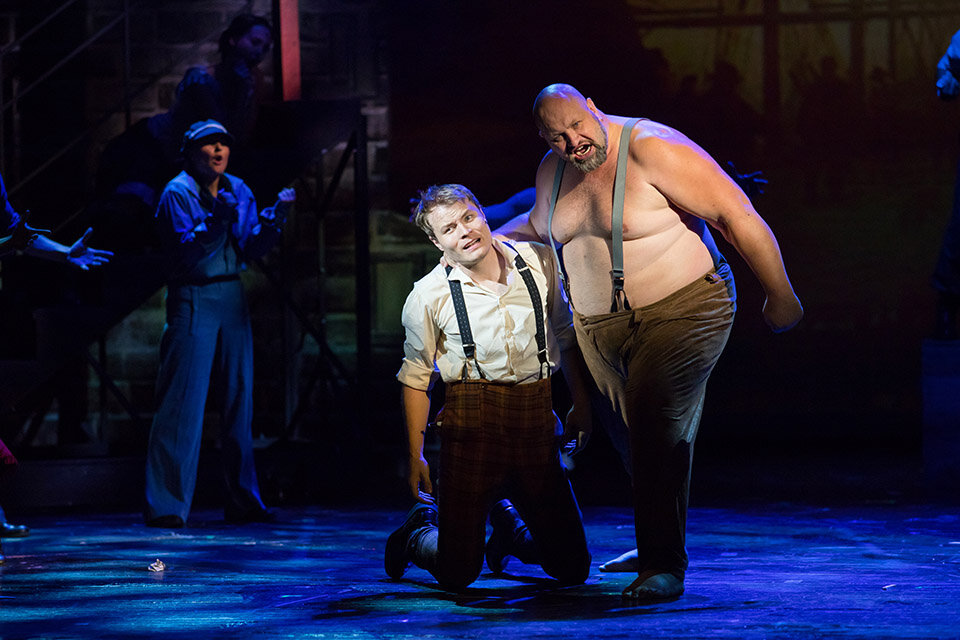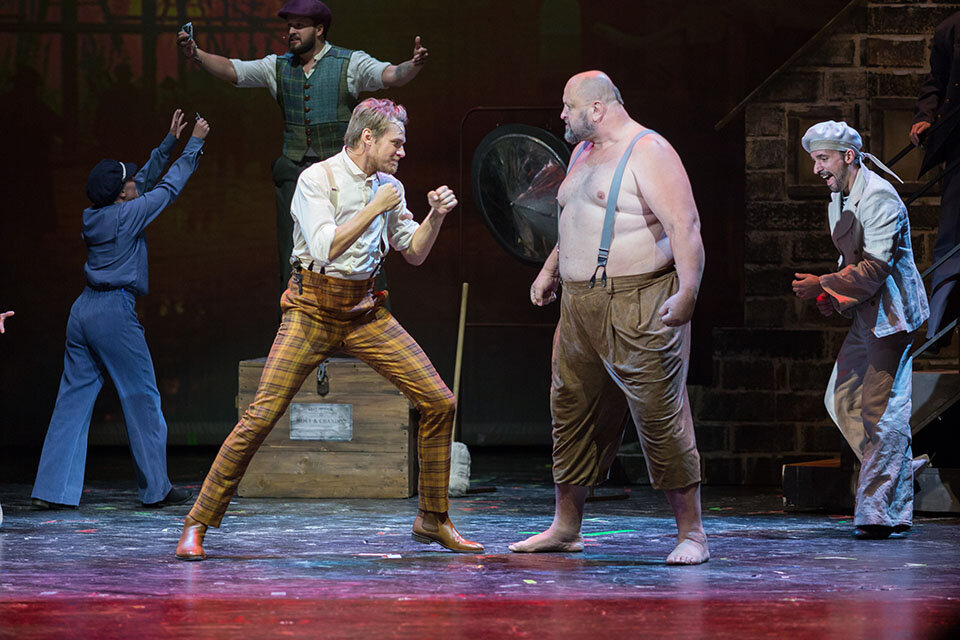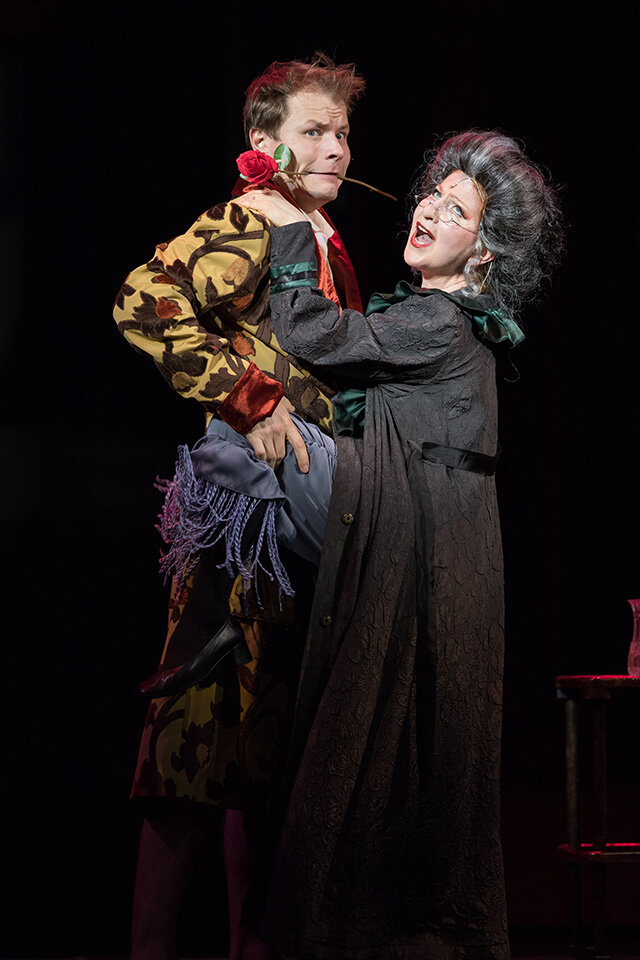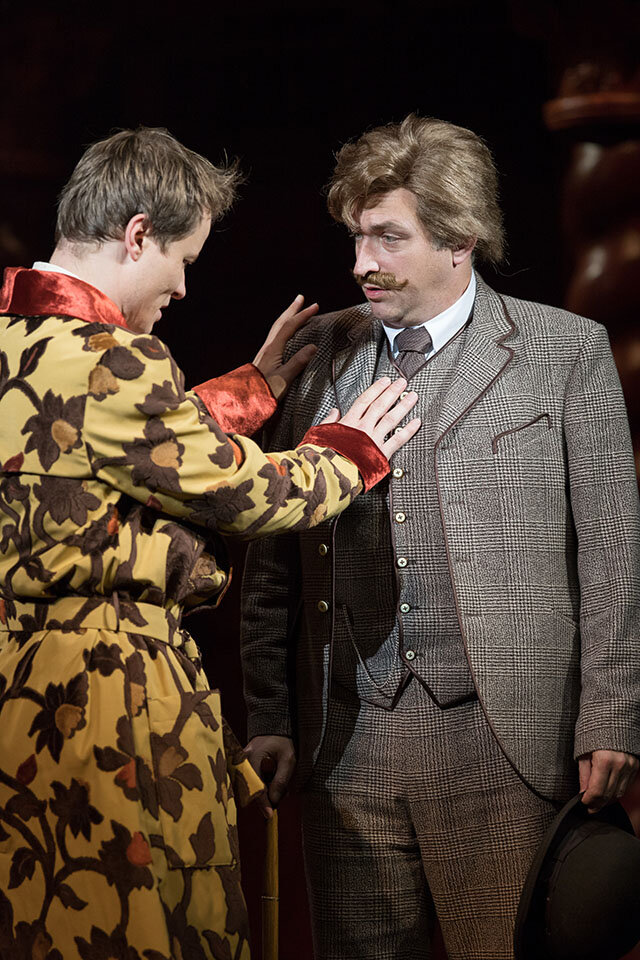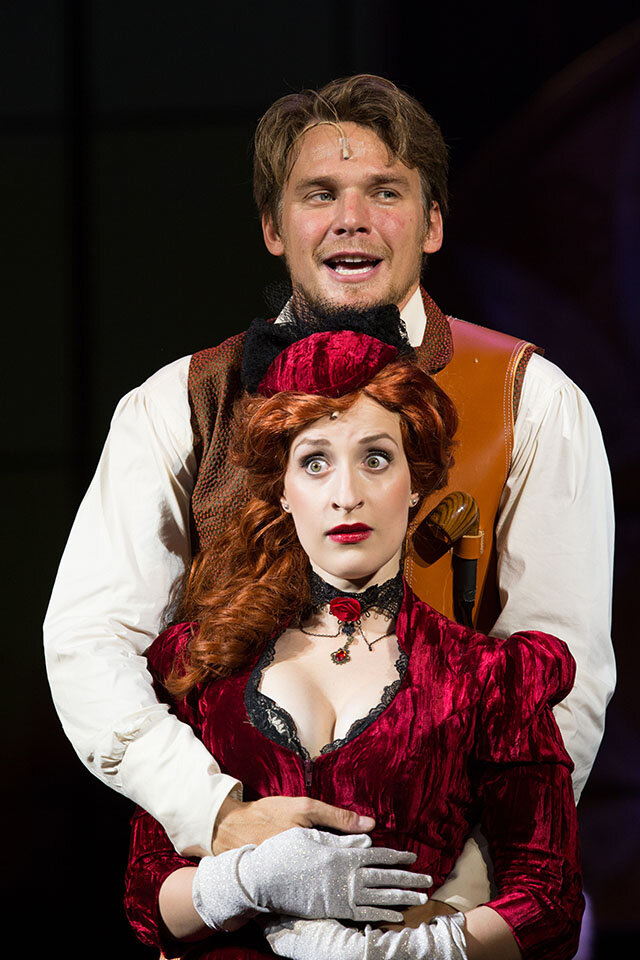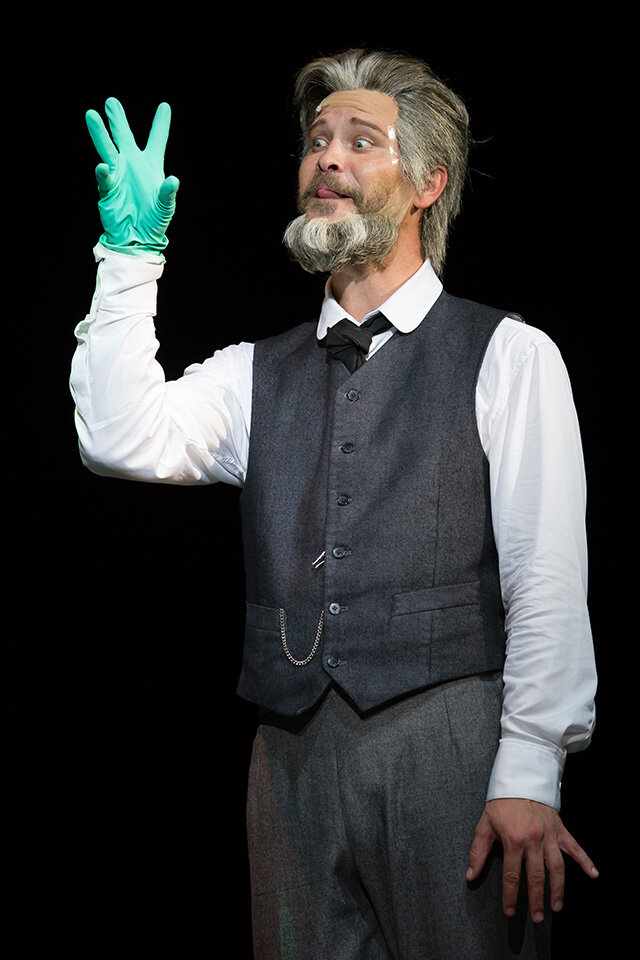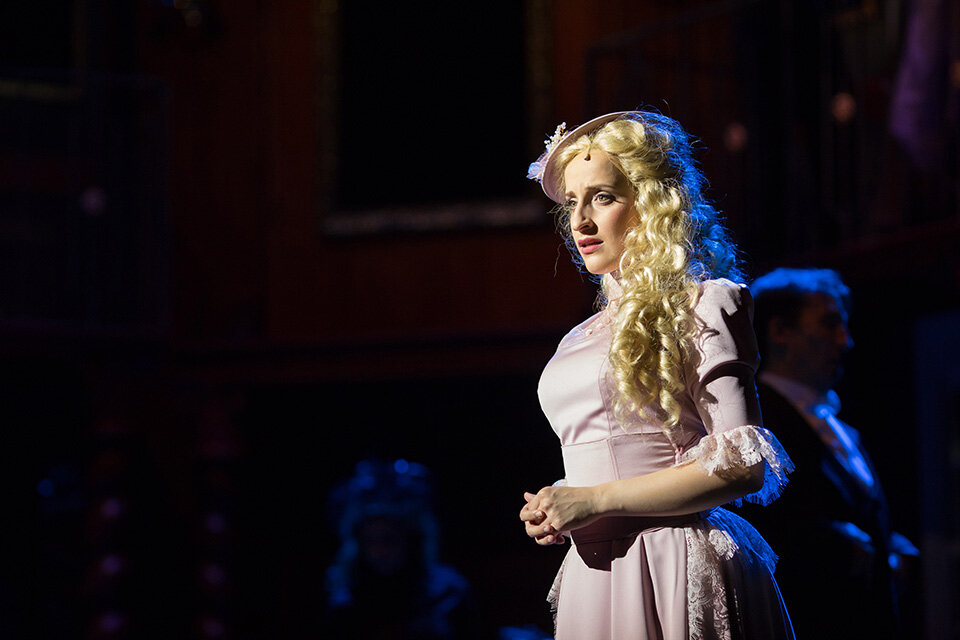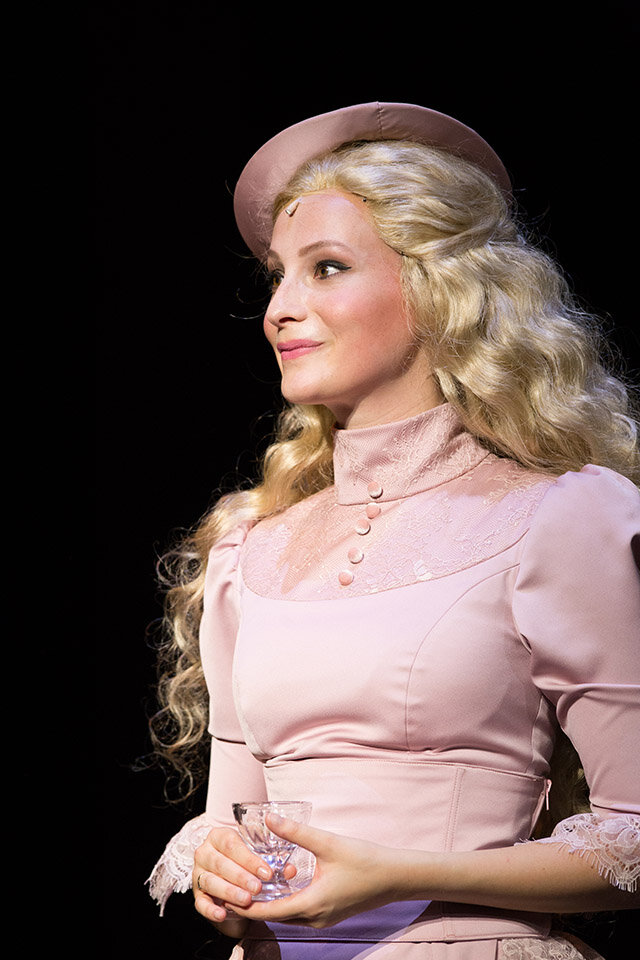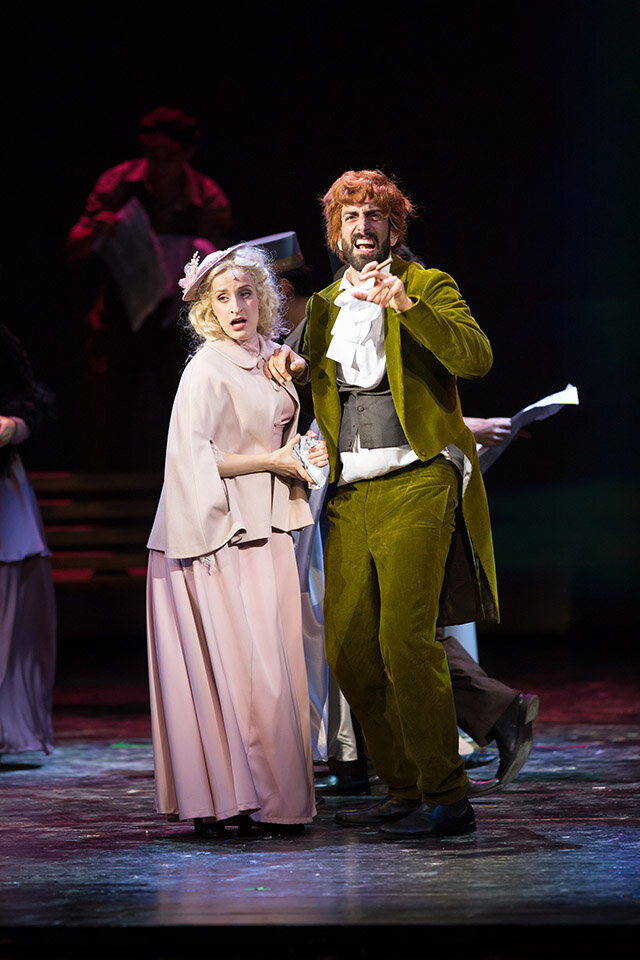HOLMES THE LEGEND - Has He Started the Musical Event of the Season? (Review)
An English Translation of the original article
When the Karlín Music Theater first announced that it would present the cult musical Legend named Holmes , it aroused embarrassment in us. Why call something cult, if no one has ever seen a work before? After some deeds in Karlín, which certainly did not introduce us in enthusiasm, we were also skeptical, only the name Ondřej G. Brzobohatý raised some hopes in us. On October 18 and 19, 2018, we had the opportunity to see if the musical has the potential to become cult.
The character of Detective Sherlock Holmes does not need to be introduced for long. Arthur Conan Doyle revived the private detective in his short stories, who had no idea what phenomenon he would create. A man of wisdom, a lover of pipes and violin playing, has since appeared not only in novels but also in radio plays, television and film, he still has many fans around the world, his own museum in Switzerland and Baker Street in London is still a very popular tourist attraction. The latest and most successful television act was a modernized version of Sherlock Holmes starring Benedict Cumberbatch, with actor Robert Downey Jr. and in 2020 we will probably have our third sequel. The literary character of Sherlock Holmes is still current and timeless, and it is no wonder that it has attracted musical creators in our region as well.Have we seen another average musical piece that suffers from the typical flaws of Czech works, or do we have a work that really has a chance to become cult?
If you are expecting a detective story with a murder at the beginning and an unexpected revelation at the end, you will be disappointed. If you like a series or the latest movies, you will come to your own. If you are not attracted to this theme at all, we still recommend giving Holmes a chance, just because musicals are not primarily about the theme, but mainly about its overall processing and, of course, the music.
Of course, fun, tension and love await you, as is often the case on our musical stages. However, we really enjoy the concept of a met-story, especially because of the possibilities it offers and the author uses them to the fullest. Moreover, similar attempts to write a "story of a story" were already here and did not turn out too famously.
Brzobohatý leaned partly on real characters and facts when writing, on the other hand, of course, he invented a lot of it. Arthur Conan Doyle has just finished another story about Sherlock Holmes, who, along with his loyal friend Dr. Watson, has outwitted his biggest opponent, Professor Moriarty, but "got a basket" from Irene Adler, the only woman he ever cared about. The readership is outraged, but what annoys Doyle's publisher Virgil Cromwell the most. However, the introverted Arthur is already at a stage when he is clearly allergic to the pronunciation of the name Holmes. He realizes that the figure he himself created has grown over his head. It even seems that Sherlock, whom the author himself calls a drug addict, is preferred by his former intern and secret love Louisa Hawkinson. Sitting with Dr. Sigmund Freud is no longer enough, so Doyle decidesthat he will end Holmes forever.
The author of the libretto, music and lyrics is Ondřej G. Brzobohatý. He has already worked on the chamber musicals Já, François Villon and Cyrano, for which he wrote music. Both works had and still have positive responses, you can still see Cyran in the Radek Brzobohatý Theater. Brzobohatý's authorial work gave us hope that we would write a positive evaluation. As Brzobohatý stated in the media, he consulted with John Kander, the author of the musicals Chicago or Cabaret, when writing the musical. He personally visited it and apparently took the time to create a musical. Given that some works are created abroad for years, while in our country the authors are able to write something like a de facto musical in a few weeks, moreover with an obvious effort to achieve the highest possible attendance, which does not look at quality, we prefer the approach of Ondřej Brzobohatý. He made no secret of the fact that he wanted to return the Czech luster to its original splendor with everything that this genre should have.He thus set himself the most difficult task, ie to create both music and libretto and lyrics.
Did he succeed?The answer is quite simple. Yes, it did, and it doesn't falter in either. Dialogues do not rustle with paper, clichés do not crumble to clichés, and since the Legend of Holmes is not taken too seriously, a number of gags and well-pointed and really funny dialogues await us. This is not a first-rate and often embarrassing humor, which has been terrifying us for a long time in musicals, even though it is grateful among the audience. In addition, the story is interspersed with a number of allusions to contemporary musical work (even the greatest layman who notices Marry Poppins knows the parody of the Phantom of the Opera?), Literature and the political situation (Virgil sings a song about how beautiful it is to own a newspaper). There is also a love story. Actually, two love stories. The most charming is the intertwining of the world of Sherlock Holmes with the world of Arthur Conan Doyle, which is completely natural. You don't have to worrythat you will not rest in the theater or you will get lost in the story - everything is written with great ease. Some may argue that the first half is almost without happening. Although it is really more of an exhibition in which we get to know the characters and their stories, we were not bored for a moment. The only flaw in our beauty for us was the beach scene, which should be strange in the overall context, but if it was shortened, we would not mind. In addition, the first act ends with an amazing finale, which will properly entice you to the breathtaking second half of the performance. The three-hour footage runs away really fast.The only flaw in our beauty for us was the beach scene, which should be strange in the overall context, but if it was shortened, we would not mind. In addition, the first act ends with an amazing finale, which will properly entice you to the breathtaking second half of the performance. The three-hour footage runs away really fast.The only flaw in our beauty for us was the beach scene, which should be strange in the overall context, but if it was shortened, we would not mind. In addition, the first act ends with an amazing finale, which will properly entice you to the breathtaking second half of the performance. The three-hour footage really runs away very quickly.
With regard to music, many people may claim that a musical has no memorable melody or main motif. On the other hand - is it to the detriment? Do we have to constantly hear music so simple on stage that we will sing it even after leaving the theater? The main thing is that you don't say "I've heard that somewhere" with Brzobohatý music - this eliminates the very serious scandal that most Czech musicals suffer from. The truth is that each of the characters has its own motif that defines it, and you may register it with the thank you note, or for further listening. You will hear very strong solo songs, the strongest of which comes at the end of the first half, love duets, pleasant jazz music, choral performances, where he has solos and company, and energetic dance music inspired by traditional Irish folklore. It may not be music that attacks the "first signal" (it still attacked us), but we are convincedthat musically the work is several classes higher than the original work in Czech musicals in recent years.
The same can be said about the lyrics. These are usually a major weakness, and we are not talking about the original texts, but also about the translations. Sometimes we feel that someone has played with an Internet translator, or just tried to make it rhyme and end it in a long ah or oh, it's sung well. We were fascinated by Holmes that even an author knows how flowery the Czech dictionary can be, and that there are also phrases that are melodious and make sense.
In order for the story to come to life as a very technically demanding performance full of magic and acrobatic tricks, at the same time full of big or small ideas, it is necessary for an experienced director to take it on. Gabriel Barre is the best choice and makes full use of his experience from abroad. The scenography by Michaela Horáčková Hořejší in particular helps him in this , so it is hard to believe that this woman was also behind the scene from Bonnie and Clyde, which did not absolutely dazzle us. However, this cannot be said of the scene in Holmes, which will culminate in the second half of the scene on the train, which the audience will remember for a very long time.
An integral part is the light design of Pavel Dautovský , who plays a big role in another imaginative scene, where Holmes analyzes the weaknesses of the opponent during the fight.
It is obvious everywhere that one mistake is enough and the carefully constructed atmosphere will collapse, but Barre connected everything with absolute bravura. We also enjoyed small details, such as "playing on paper" and involving the orchestra in the story. The monumental scene where we find ourselves on Big Ben, then on Baker Street, at the train station or in the docks, we call bravo , the overall impression is not hurt by the projections.
If you feel that you haven't seen the original choreography on the Czech stage for a long time, just mindless bouncing and waving your hands without any energy, in this case you don't have to be afraid. The author of the choreography Karen Sieber added another hilarious piece to the mosaic Legend named Holmes. Here, the company is especially important, which must be able to handle not only dance, but also live singing. At the premiere, the audience was most excited by the dance performance in the already mentioned docks. Maybe we could do without the dancing dream couple Doyle and Louisa, on the other hand we know that the Czech audience has trouble staying with the duet of two soloists without having any further impression on stage.
Chuhei Iwasaki took care of the music production and we will say again about the Karlín Theater Orchestra that it is one of the best.
The last component we want to mention are the costumes of Kristina Záveská. Maybe someone perceives costumes as a relatively unimportant part of the whole, unfortunately in the Czech Republic we always have pompous costumes, especially when most creators enjoy historical themes. Unfortunately, the pomp is sometimes very kitschy and epic costumes can distract the viewer from other shortcomings of the musical. And if you orient yourself in costumes, it happens to you (as one of the authors of this text) that if you sit in the front row, you suffer when looking at cheap materials, wigs, and a colorful "mishmash". Holmes is somewhere else in this regard. All costumes are color-coordinated to complete the character of the character and define it, the details on the costumes and the materials from which they are made are also perfected. We definitely have a Holmes brown coat with a floral pattern. And as for the costumes of Moriarty's henchmen - do they also remind you of Mimona?
And how are the soloists? We want to avoid comparing alternations in the sense that he was worse and this one was better, because to the great name of Holmes it is not even possible to say that to our great joy. It's mainly about personal preferences. The acting concept of the role is different for almost every representative and it really depends on the viewer what will be closer to him. Of course, this applies to those who go to the theaters more often, those who go once do not have to worry about experiencing below-average performance. All alternations are completely balanced, they differ only in small nuances - someone uses other messages, but it cannot be said that his concept would be worse than others. What's more, everyone has a dual role, and each character is completely different - Bonvian Sherlock and closed Doyle, a somewhat eccentric Dr. Freud versus the prudent Watson,femme fatale Irene and sweet Louisa - all this places very high demands on soloists in all aspects.
The role of Holmes / Doyle was written for Vojta Dyk . If you have no idea about it, or you have it connected with a somewhat bizarre musical past, then you should know that Dyk is not just a beautiful face gnashing himself at us from the front pages of the boulevard. He sings, plays and yodels well (we don't mention the latter by chance). Holmes fits him a little more, but even a shy writer is no stranger to him. If you're a fan of his, you'll enjoy him as much as he enjoys both roles, and if you're not a fan yet, you might become one quickly. Sometimes you may feel, especially in the position of Holmes, that you are looking at the "star Vojta Dyk" and not the character he is to play, but this is more due to the fact that the role is sewn directly on his body and therefore is like a fish in it in the water. He plays with both acting positions with ease of his own, in addition he will captivate you with his flawless singing and huge range, which really excels in Brzobohatý music.
Lukáš Janota , who is known especially by musical fans and the Brno audience, has an even more difficult position , it will be a new face for most Prague audiences. Janota thus has to break out of the "Dykov" shadow, and we must immediately say that he is doing well, even more famous than his more famous colleague (apart from yodeling). Janota is not a copy of his alternate, he took the dual role in his own way, he is sovereign both in singing and acting, he excels most at the end of the first half, when Doyle declares a "war" for Holmes. In Brno, his name is a guarantee of quality and we are glad to see him more often in Prague.
The double role of Dr. Watson and Freud (yes, the famous Dr. Sigmund Freud) was played by Marek Holý at the premiere and we are glad to see him in the musical again. He has made great singing progress since the days of Zorro, and we know that he has comedic talent, so we're sorry he won't expand on Freud's slightly eccentric role. He was overtaken by Denny Ratajský , who enjoys Freud to the fullest. But both are very good in all respects, although Watson / Freud do not have too many singing parts. In addition, Holý and Ratajský are very well cast in terms of type, more or less all soloists, the audition had an extremely happy hand here.
Kristýna Daňhelová and Anna Fialová take turns in the role of Sherlock and Arthur Louisa and Irene. Irene and Louisa are probably the most demanding singing role after Sherlock. At the 1st premiere, we were pleasantly surprised by Anna Fialová , who was excellent in terms of acting. She didn't even lag behind in singing, and if the incredible charisma is added to it, you'll forgive her for some small mistakes. Kristýna Daňhelováis the name from the Brno musical stage and many thought that it was a sure bet. Maybe yes maybe no. But we still have the impression that if I occupy a star from elsewhere, it must surpass all others. Acting, Daňhel manages the role with an overview, singing, especially in the high passages, stumbles slightly from time to time. Her leading currency is the interesting color of the voice. For ladies, it's the same as for gentlemen - it depends on who you prefer, which color of voice will enchant you more.
At the 1st premiere, Jan Sklenář was appropriately brilliantly mad as Professor Moriarty and, like Virgil Cromwell, affected and slimy. The glazier is sufficiently realized in both positions of the role, he is better in drama scenes than in singing. The same could be said of Petr Vaňek , although his singing is a little more pronounced. He then plays both characters differently than Sklenář, less eccentrically, because he has an indisputable advantage in that his appearance in combination with the appropriate wig looks really villainous and further enhances the role of the bizarre publisher with a small belly. In short, you will enjoy both masters properly, and if you want to have even more fun, you have to see both of them, everyone puts something of their own, original, no "nothing" into their role - "not even Notting Hill" happens.
Mrs. Hudson, Sherlock Holmes's housekeeper, is conceived differently by both representatives, but even in the case of Ivana Chýlková or Jaroslava Kretchmerová, you will not be deprived of some of the funniest performances. Yes, each has its own distinctive style and other buzz, but the output of the longed-for fury that Sherlock wants "to devastate" is one of the funniest moments, and both ladies serve everything very decently, without falling into embarrassment.
Inspector Lestrade is a purely entertaining character. A typical mamlas, which is always transported by Sherlock Holmes, but fortunately it is not so premature and does not fall to the level of other similar mamlas, which we have too much in Czech musicals. Lestrade sometimes even knows what applies to Holmes and has one singing performance with all the great - under normal circumstances we would note that this is a song that does not move the plot, it is just a show of dancers and pyrotechnics, but by Filip Rajmont on 1. he didn't even pretend to premiere that he could sing and he deliberately exaggerated it at heights, we had a lot of fun here too. In addition, Filip Rajmont is again perfectly matching the type, especially when he runs with a pointed cap, which is supposed to catch up with him. Jaromír Dulava, on the other hand, is not catching up. He is better at singing than Rajmont, and he understands his role differently, you could say that he "starts" gradually, when despite a "mild" introduction, he literally excels in the second half. His mischievous motivational speech to Holmes to stand up for the ideals and moral and moral principles of mankind so that they can draw from this legacy whole generations of our sons, and their sons' sons, and their sons' sons, and sons' sons' sons' sons' sons' sons sons of sons sons of sons sons of sons, sounds in our ears to this day and belonged to the peaks of Dulav. That's sons, isn't it? Even in this role, you just don't step aside.
We wish the cutest soloist Julia Toclaramas (Gladstone - without alternation) not to be so nervous with the growing number of reruns.
In conclusion, we definitely want to mention the singing and dancing company. As we wrote above, the company is really singing, although part of the choirs is of course in the orchestra pit. They all do a great job and can't be said to be "just a bush", sometimes a significant dose of acting is required of them. In the company you will see Ivo Hrbáč (understudy Sherlock Holmes / Arthur Doyle), Jan Urban (understudy Moriarty / Cromwell), David Bouša (understudy doctor Watson / Freud), Vendula Příhodová (underusty Irene / Louisa), Jakub Šlégr (understudy inspector Lestrade), Kateřina Nováková (understudy Mrs. Hudsonová) and others.
The only thing we would blame Ondřej G. Brzobohatý for not occupying one of the main roles. Yes, it's a reproach with a drop of exaggeration, and we actually welcome the fact that the creator doesn't necessarily have to sit on all the chairs, but if not the main role, then Moriarty's villain would certainly suit him.

